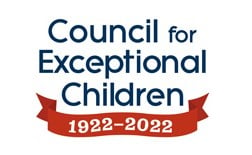ILCCBD
2025 VIRTUAL WINTER CONFERENCE
FEBRUARY 6-9, 2025
Four days of professional development with expert speakers exploring timely topics.
| |
Winter Conference Program
. THURSDAY, FEBRUARY 6, 2025
3:30 p.m.-4:00 p.m.
Check in for PDs.
4:00 p.m.-5:00 p.m.
Exploring the Mittin: Introduction to Virtual Reality Life Skills Skills Instructions for Students with E/BD--James Nuse (PhD, BCBA-D), Ethan Alleman, Graduate Assistant/Graduate Student, McNeese State University.
5:15 p.m.-6:15 p.m.
Building the Foundation: Essential Strategies for Supporting Students with E/BD--LaSheba Hilliard (EdD).
6:30 p.m.-7:30 p.m.
It Takes A Village to Develop an Effective Support System for Students with E/BD--Elizabeth Hardman (PhD).
7:45 p.m.-8:45 p.m.
Building an Optimal Learning Environment Through Trauma Invested Practices--Mary Mangione (MA).
FRIDAY, FEBRUARY 7, 2025
3:00 p.m.-3:30 p.m.
Check in for PDs.
3:30 p.m.-4:30 p.m.
The Stories We Tell Ourselves: Harnessing the Power of Language to Foster Success--Michelle Laird (EdD).
4:45 p.m.-5:45 p.m.
Effective Low-Intensity Interventions to Address the Rise in Challenging Behavior in the Classroom--Richard Van Acker (EdD).
6:00 p.m.-7:00 p.m.
Learning Terms and Collaborating on Behavior Interventions--Amanda Cash (PhD, BCBA-D, LBA).
7:15 p.m.-8:15 p.m.
Incorporating Cultural Competencies in the Classroom--Roch Turner (PhD).
SATURDAY, FEBRUARY 8, 2025
8:00 a.m.-8:30 a.m.
Check in for PDs.
8:30 a.m.-9:30 a.m.
Key Discipline Issues--Neal Takiff, Attorney at Law and Shermin Ali Andana, Attorney at Law, Whitted Takiff, LLC.
9:45 a.m.-10:45 a.m.
Advocating for Autism: The Implementation of Classroom Strategies--Paula Stewart (MA-EDL, LBS1).
11 a.m.-12 noon
How to Interview, Position, and Support your Behavior Specialist--Heather Volchko (MEd, BCBA).
12 noon-12:30 p.m.
Break
12:30 p.m.-1:30 p.m.
Facilitating Effective Problem Solving Meetings--Samantha Barrett (M.S., BCBA, LBS1).
1:45 p.m.-2:45 p.m.
Pathological Demand Avoidance Syndrome--Elena Ghionis (EdD).
3:00 p.m.-4:00 p.m.
I Ain't Sus: Transforming Exclusionary Discipline into Empowering Support Systems--Matthew Hayes (AS, NLP) and Heather Volchko (MEd, BCBA).
SUNDAY, FEBRUARY 9, 2025
12:30 p.m.-1 :00 p.m.
Check in for PDs.
1:OO p.m.-2:00 p.m.
Creating Safe Places: Fostering Learning and Growth for All Learners--Lisa Cipriano (MEd, BCBA).
2:15 p.m.-3:15 p.m.
Let's Talk About Consequences--Keri Sullivan (EdD, BCBA).
3:30 p.m.-4:30 p.m.
Connecting Self-Advocacy to Writing for Youth At-Risk for E/BD in a Juvenile Justice Facility--Allyson Pitzel (PhD).




